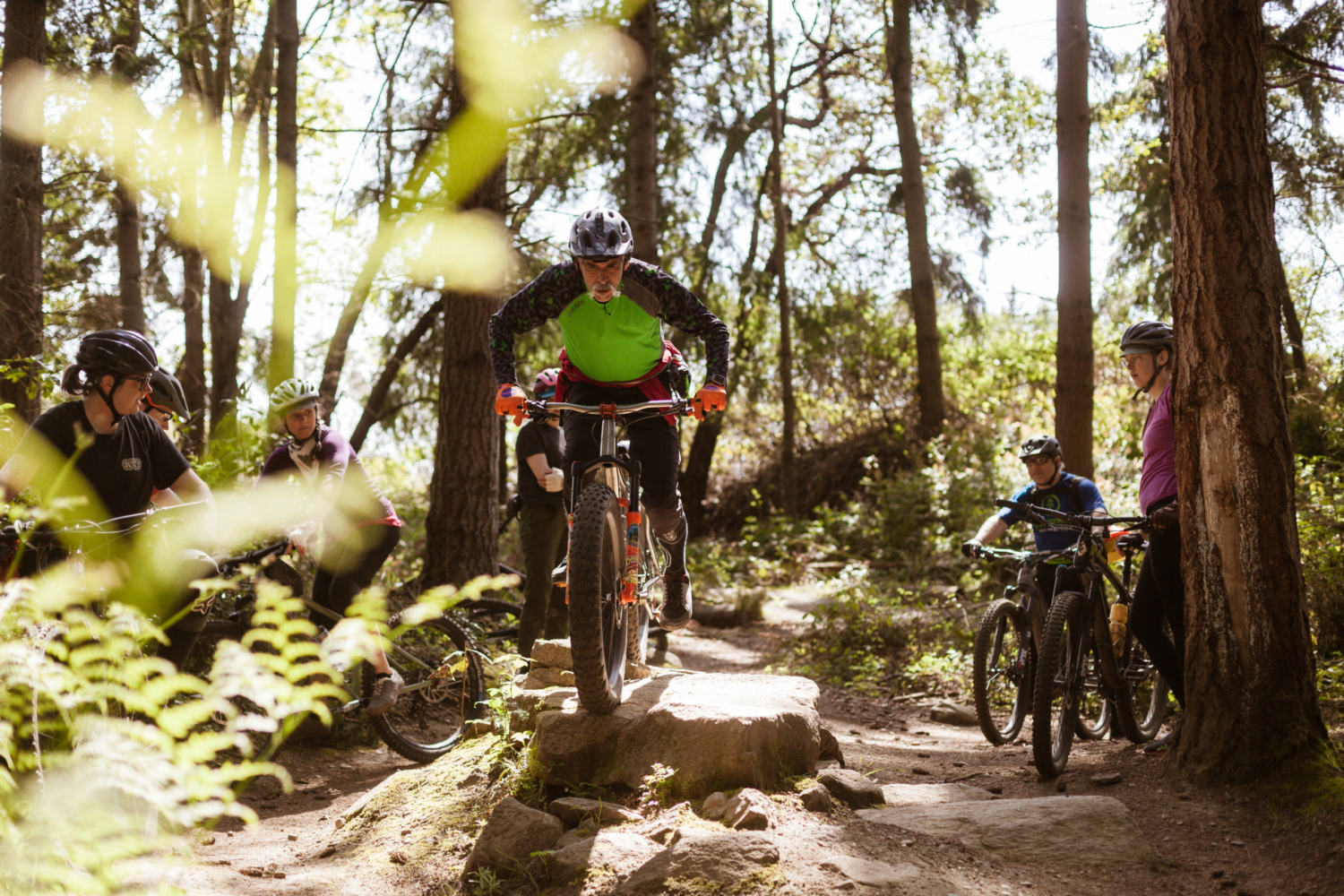
In the spring, we host our annual MTB Foundations of Dirt weekend workshop. This is our official kick off to the 2023 Swift Adventure Co. season, and it’s a great […]

Official Q&A Post
It's easy to assume that if you know how to ride a bike you can just hop on a mountain bike and figure it out. What are some things that are specific to riding mountain bikes that can make that transition challenging?
Marcelo: This is a common misconception, compounded by the fact that most people know how to ride a bike. MTB is a unique very high consequence sport, that has little to do with how most folks learned ride (i.e. riding a bike on smooth and flat surfaces). I would say the most important thing about MTB is to treat it as new sport. I don’t think many folks would try paragliding without professional instruction. New riders that approach the sport with an open mind towards learning something new will do fantastic.
Thomas: Mountain biking involves going up, down, and over terrain. Doing that requires that you move around on your bike athletically and autonomously from your saddle. It is merely a kick stand for your butt when engaged in extended higher demand pedaling. When going downhill or getting air, the saddle and seat post are an obstacle to bike balance and directional control.
What is one important thing that people don't necessarily think about when it comes to riding on trails?
Marcelo: Body position and managing grip are critical and tends to be something new folks don’t quite understand.
Thomas: Riding a trail is a dialogue with that tread and terrain through nature, its builder, and riders that frequent, and maintain it. It is a dialogue of movement and your bike is your interlocutor to facilitate the navigation, the lines you hope to parcel with each pass. Given time that conversation burns a kinesthetic nemonic that adds depth to your ridership and ability.
What's a common frustration for people first starting out on mountain bikes and how do you work through it?
Marcelo: Fear can be a big challenge for many folks, riding from a place of confidence vs bravery.
Thomas: There is always learning that can be scaled, it is important to enjoy and share the process. Keep checking in on where you are and where you want to be. If you are not feeling it on a given day then it is ok opt out. Fear is real. It is something that as mountain bikers you will face, and can learn to manage. In this way, the bike is literally and figuratively a tool to practice and find balance.
For people who might feel a little intimidated by mountain biking and trail skills, what are your best works of encouragement?
Marcelo: Be kind to yourself, being afraid is normal and real. When you are learning, listen to your fear it’s there for a reason. A good coach or mentor will help you work with your concerns not dismiss them.
Thomas: The bike will go over it mostly, the challenge is to prepare yourself with the skills and confidence to succeed, and ultimately the will to recover and learn from mistakes and injury.
What is the most fun part about teaching mountain biking skills workshops?
Marcelo: Seeing the joy and growth in folks I get to coach, it is quite an honor participate in that process.
Thomas: I agree with what Marcelo said, and also, for me, it is fascinating to explore ways to facilitate and accelerate the process and try and maximize gain or stoke, or both.
What's your favorite part about riding mountain bikes?
Marcelo: Feeling like I’m 5 years old, that sense of joy and freedom that comes from being on a bike!
Thomas: As a fat biker who rides on mountain bike trails, my love is mixed terrain riding where trails are somewhat optional: sand Dunes, desert washes, beaches, and that sort.
